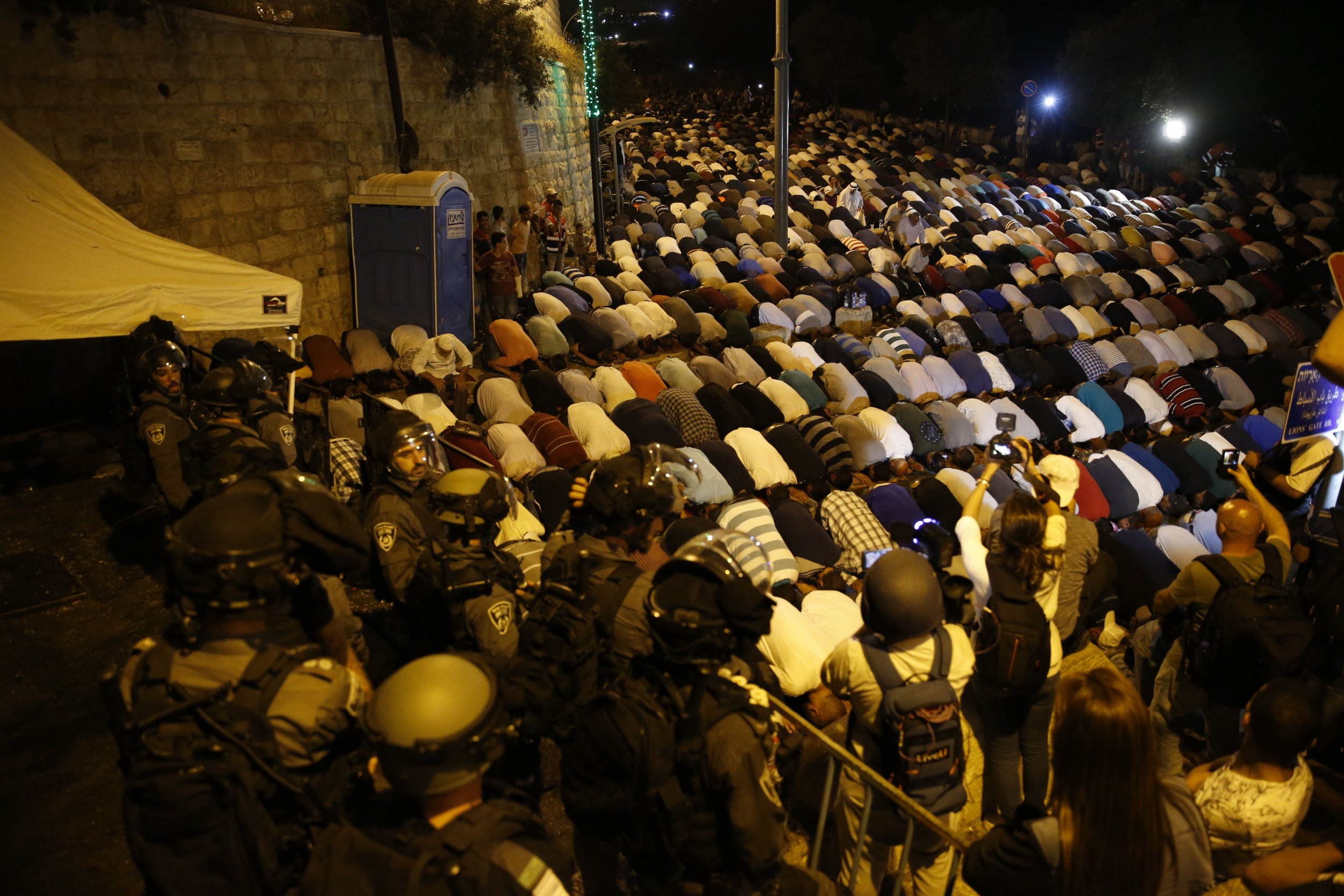
The top pan-Islamic organization in the Middle East is to convene next week to discuss the crisis surrounding the contested Jerusalem holy site that has sparked an uptick in violence, not just in the city but also in neighboring Jordan.
The Organisation of Islamic Cooperation, which consists of 57 member states, is to meet in Istanbul on August 1, according to a statement issued Tuesday.
The decision comes after a spiral of violence that resulted in the highest tensions in the city since the stabbing attacks by Palestinians against Israelis in the months after September 2015, again over perceived violations at the holy site known as the Temple Mount to Jews and the Haram al-Sharif to Muslims.
"The issue of the Al-Aqsa Mosque is a red line," the OIC, based in the Saudi city of Jeddah, said in a statement Monday after meeting on the country's Red Sea coast.
"Attacking the Al-Aqsa Mosque in any way and under whatever pretext will have serious consequence and will lead to instability in the region," it added.
The site holds the Al-Aqsa Mosque, which is considered the third-holiest in Islam, and the Dome of the Rock. It sits in East Jerusalem, a territory Israel has occupied since the 1967 Six-Day War, and is considered the holiest site in Judaism.
The sequence of events began when three Palestinians from the northern Israeli town of Umm al-Fahm smuggled guns into the contested complex, shooting two Israeli policemen dead at its entrance on July 14. Israeli security forces shot all three gunmen dead.
Israeli police proceeded to impose new security measures, including metal detectors and security cameras, which angered Muslims, who claimed Israel was trying to increase its authority at the site. Israel has maintained that the security measures are necessary to prevent another attack, as the violence in July began from within the complex. The site is still presided over by a Jordanian-Palestinian waqf, or Islamic trust.
Israel also banned Muslim men under the age of 50 from attending Friday prayers at the Al-Aqsa Mosque. Muslims, heeding the call of their community groups, boycotted prayers at the site and instead held them in public squares or outside the holy site.
In protests on Friday and since, clashes resulted in the deaths of five Palestinians. A 20-year-old Palestinian entered the West Bank settlement of Halamish, stabbing an Israeli father and his two children to death as the family sat down for their Shabbat, or Sabbath, dinner.
A neighbor armed with a gun shot and injured the attacker, Omar el-Abed, who'd written in Arabic on Facebook before the attack: "I'm 20, I have many dreams, but there is no life after what is seen in Al-Aqsa."
In the latest act of violence since the July 14 attack at the contested site, Israel says a Jordanian stabbed one of its security guards at the Israeli embassy in Amman, the capital of Jordan.
The guard shot two Jordanians dead: one of them the alleged attacker, the other by accident. Jordan said it wants to question the guard. The latter remains inside the embassy, and Prime Minister Benjamin Netanyahu has vowed to bring him back to Israel.
Israel's Foreign Ministry said the attacker, 17-year-old Mohammed Jawawdeh, was in the embassy to install furniture but proceeded to stab the guard in the back with a screwdriver. Jawawdeh's father called for "the truth," urging authorities to investigate security footage from the embassy. "My son has no interest in politics. He does not follow any extremist ideology," he told AFP news agency.
Israel has been at peace with Jordan since 1994, but the tensions in Jerusalem over the new security measures and the embassy incident threaten to spark a diplomatic crisis between the neighbors. Israeli newspaper Haaretz reported Monday that a senior Israeli defense official would travel to Jordan in a bid to resolve the spat.
Uncommon Knowledge
Newsweek is committed to challenging conventional wisdom and finding connections in the search for common ground.
Newsweek is committed to challenging conventional wisdom and finding connections in the search for common ground.
About the writer
Jack is International Security and Terrorism Correspondent for Newsweek.
Email: j.moore@newsweek.com
Encrypted email: jfxm@protonmail.com
Available on Whatsapp, Signal, Wickr, Telegram, Viber.
Twitter: @JFXM
Instagram: Read more
To read how Newsweek uses AI as a newsroom tool, Click here.








